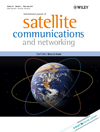
INTERNATIONAL JOURNAL OF SATELLITE COMMUNICATIONS AND NETWORKING
Scope & Guideline
Advancing the Frontier of Satellite Connectivity
Introduction
Aims and Scopes
- Satellite Communication Systems Design:
Research on the design and optimization of satellite communication systems, including novel architectures, algorithms, and methodologies for enhancing performance. - Integration with Terrestrial Networks:
Studies focusing on the integration and coexistence of satellite systems with terrestrial networks, particularly in the context of 5G and beyond. - Advanced Signal Processing Techniques:
Investigations into signal processing methods, including beamforming, MIMO, and interference management to improve satellite communication reliability and efficiency. - Emerging Technologies in Satellite Systems:
Exploration of cutting-edge technologies such as AI, machine learning, and quantum communications as they pertain to satellite systems. - Network Performance and Resource Management:
Research on resource allocation, network optimization, and performance analysis in satellite networks, including hybrid satellite-terrestrial systems. - Environmental Impact Studies:
Assessment of environmental factors affecting satellite communications, such as atmospheric conditions and their impact on signal propagation.
Trending and Emerging
- Low Earth Orbit (LEO) Constellations:
There is a significant increase in research focused on LEO constellations, driven by advancements in satellite technology that allow for high throughput and low latency communication. - Integration of AI and Machine Learning:
Emerging studies highlight the integration of artificial intelligence and machine learning in optimizing satellite communication processes, including predictive maintenance and resource management. - 5G and Beyond Integration:
Research on the integration of satellite systems with 5G networks is trending, emphasizing the role of satellites in providing connectivity for IoT and enhancing terrestrial network coverage. - Quantum Communication Technologies:
The exploration of quantum communication methods is on the rise, reflecting interest in secure communication protocols and the potential for quantum-safe satellite networks. - Environmental and Atmospheric Impact Studies:
There is an increasing focus on understanding the environmental impacts on satellite communication, particularly studies related to atmospheric effects and propagation challenges.
Declining or Waning
- Traditional Geostationary Satellite Focus:
There has been a noticeable decrease in research centered around traditional geostationary satellites, as the focus shifts towards low Earth orbit (LEO) constellations and hybrid systems. - Basic Satellite Communication Protocols:
Research on fundamental satellite communication protocols has waned, likely due to the advancement in more complex and integrated systems that require innovative solutions. - Static Satellite Systems:
The exploration of static satellite systems has diminished as dynamic and adaptive systems, such as those utilizing AI and machine learning, gain more attention. - Single-Satellite Solutions:
There is a declining interest in single-satellite solutions, as researchers are now more focused on multi-satellite constellations and their cooperative functionalities.
Similar Journals
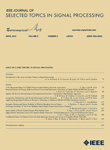
IEEE Journal of Selected Topics in Signal Processing
Advancing the Frontiers of Signal Processing KnowledgeIEEE Journal of Selected Topics in Signal Processing is a premier academic publication dedicated to the advancement of knowledge in the field of signal processing. Published by IEEE-INST ELECTRICAL ELECTRONICS ENGINEERS INC, the journal boasts an impressive impact factor that places it in the top tier of its category; ranked Q1 in both Electrical and Electronic Engineering and Signal Processing for 2023. Given its esteemed standing, the journal serves as a vital resource for researchers, professionals, and students alike, providing cutting-edge insights and developments that shape the future of signal processing. The journal encompasses a wide array of topics relevant to the evolving landscapes of electrical engineering and computer science, with particular significance in innovative applications and methodologies. As a platform for disseminating high-quality research, this journal remains essential for those seeking to stay at the forefront of this dynamic field. You can explore the latest contributions and findings, benefiting from the journal's influential status in the realm of signal processing.

Infocommunications Journal
Connecting Knowledge in Computer Science and EngineeringInfocommunications Journal, published by the SCIENTIFIC ASSOCIATION INFOCOMMUNICATIONS, stands as a vital resource within the fields of Computer Science and Electrical and Electronic Engineering. Since its inception in 2011, this journal has consistently contributed to the discourse surrounding innovations and research trends in these dynamic disciplines, culminating in a converged operational span through 2024. With an ISSN of 2061-2079 and an E-ISSN of 2061-2125, it is indexed in Scopus, showcasing impressive rankings within its categories, notably a Q3 classification in both Computer Science (miscellaneous) and Electrical and Electronic Engineering as of 2023. Although the journal operates under a non-open access model, its contributions are nonetheless essential for researchers and professionals seeking to advance their knowledge and practice. Situated in Budapest, Hungary, at Kossuth Lajos Square 6-8, 1055, the Infocommunications Journal is committed to fostering a rich scholarly exchange, making it an indispensable platform for those invested in the frontiers of technology and communication.
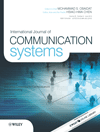
INTERNATIONAL JOURNAL OF COMMUNICATION SYSTEMS
Unveiling Breakthroughs in Signal Processing and NetworksInternational Journal of Communication Systems, published by Wiley, is a premier scholarly publication dedicated to advancing the field of communication systems and network engineering. With an ISSN of 1074-5351 and E-ISSN 1099-1131, this journal has emerged as a critical resource for researchers and professionals alike, showcasing innovative research from 1994 to 2024. Holding a distinguished Q2 quartile ranking in both Computer Networks and Communications and Electrical and Electronic Engineering, it ranks within the top tiers of its field, reflecting its high impact and relevance. The journal's focus spans a wide range of topics within these disciplines, including but not limited to, advanced communication protocols, network design, signal processing, and emerging technologies. Although it does not currently offer open access options, the journal remains committed to disseminating high-quality research to contribute meaningfully to the scientific community. Researchers, professionals, and students will find invaluable insights and ideas to further their work and understanding in this dynamic field.
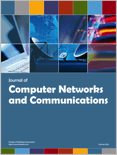
Journal of Computer Networks and Communications
Bridging Theory and Practice in Networking SolutionsThe Journal of Computer Networks and Communications is a premier open-access journal published by HINDAWI LTD, dedicated to advancing the field of computer networks and communications. With an ISSN of 2090-7141 and an E-ISSN of 2090-715X, this journal has been accessible to researchers since its inception in 2011, promoting widespread dissemination of knowledge in this rapidly evolving discipline. Based in Egypt, the journal's editorial standards are upheld through a rigorous peer-review process, contributing to its strong academic reputation. As of 2023, it holds a commendable Q2 ranking in Computer Networks and Communications and a Q3 ranking in Information Systems within its category quartiles. According to Scopus rankings, it occupies the 141st and 143rd positions in its respective fields, showcasing its relevance and influence in the academic community. The journal's mission is to publish high-quality research that addresses contemporary challenges in networking technologies and systems, making it an essential resource for researchers, professionals, and students seeking to innovate and excel in these fields.

MICROWAVE JOURNAL
Exploring the Frontiers of Microwave TechnologyMicrowave Journal, published by Horizon House Publications Inc, is a well-established platform in the field of Electrical and Electronic Engineering, specifically focusing on the advancements and applications of microwave technology. Since its inception in 1969, the journal has consistently delivered high-quality research, making it an invaluable resource for professionals, researchers, and students alike. Despite its Q4 ranking in Scopus for 2023, the journal plays a crucial role in disseminating knowledge and fostering innovation within its niche, showcasing developments across various areas including microwave systems, components, and applications. Although it does not offer Open Access, the journal’s comprehensive insights and peer-reviewed articles are essential for anyone looking to deepen their understanding of microwave engineering. By maintaining a rigorous editorial standard, Microwave Journal continues to shape the discussion and evolution of microwave technology.

IEEE Communications Surveys and Tutorials
Exploring the Frontiers of Communication TechnologiesIEEE Communications Surveys and Tutorials is a premier journal published by the IEEE-INST ELECTRICAL ELECTRONICS ENGINEERS INC, renowned for its insightful contributions to the field of communications engineering. Since its inception in 2005, this journal has become an authoritative source of comprehensive surveys and instructional materials addressing current trends and advancements in communication technologies. With an impressive Q1 ranking in Electrical and Electronic Engineering, it ranks first among 797 journals in its category, placing it firmly in the 99th percentile according to Scopus metrics. Researchers, professionals, and students alike benefit from its well-researched articles, making it an essential resource for those seeking to deepen their understanding or stay updated on cutting-edge innovations. Although it does not currently operate as an open-access outlet, the journal's commitment to excellence ensures that each publication is a valuable asset for the academic community.
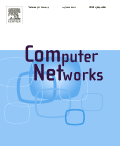
Computer Networks
Connecting Innovations in Computer NetworksComputer Networks, a prestigious journal published by Elsevier, stands at the forefront of the field of computer networking and communications. Established in 1978, this journal has consistently provided a robust platform for the dissemination of high-quality research, currently holding a Q1 ranking in its category as of 2023, specifically within the Computer Science - Computer Networks and Communications sector, placing it in the top 10% of journals in its field (ranked #38 out of 395). With a focus on innovative networking technologies and fundamental theories, Computer Networks showcases original research articles, comprehensive reviews, and significant advancements that drive the academic community and industry practices forward. Although it follows a non-open access model, it remains widely accessible through various academic databases, ensuring that professionals, researchers, and students can engage with its valuable content. The journal's commitment to excellence contributes to its high impact factor, solidifying its role as an essential resource for those aiming to stay at the cutting edge of networking research.
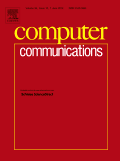
COMPUTER COMMUNICATIONS
Pioneering Research in Communication ProtocolsCOMPUTER COMMUNICATIONS is a premier journal published by Elsevier, covering cutting-edge research in the field of computer networks and communications. With an impressive 2023 Scopus ranking placing it in the 95th percentile and classified as Q1 in its category, this journal embodies the forefront of technological advancement and scholarly excellence. Since its inception in 1978 and poised to continue until 2024, COMPUTER COMMUNICATIONS serves as an essential platform for disseminating high-impact research that advances our understanding of computer networking protocols, architectures, and applications. Although it is not an open-access publication, the journal provides various access options to ensure that its findings are widely circulated among researchers, professionals, and students. Through rigorous peer review and a commitment to fostering innovation, COMPUTER COMMUNICATIONS plays a vital role in shaping the future of communication technologies.
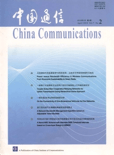
China Communications
Illuminating the Path of Telecommunications ExcellenceChina Communications is a prestigious peer-reviewed journal published by the China Institute of Communications, dedicated to advancing the field of telecommunications and information technology. With an impressive Q1 ranking in both Computer Networks and Communications and Electrical and Electronic Engineering, this journal stands out as a leading source of cutting-edge research and innovative solutions in the engineering domain. The journal aims to provide a platform for scholars and practitioners to share their findings on the latest trends, technologies, and methodologies impacting the communications landscape in China and beyond. It is particularly noted for its high visibility in the academic community, as demonstrated by its Scopus rankings, which place it in the top percentiles for both fields. Through its commitment to quality content, China Communications contributes significantly to the advancement of knowledge, making it an invaluable resource for researchers, professionals, and students alike.
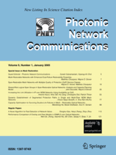
PHOTONIC NETWORK COMMUNICATIONS
Connecting Ideas through Photonics and Networking.PHOTONIC NETWORK COMMUNICATIONS, published by SPRINGER, is an esteemed journal dedicated to advancing the fields of atomic and molecular physics, optics, computer networks and communications, as well as electrical and electronic engineering. Since its inception in 1999, this journal has become a pivotal platform for researchers and professionals to disseminate innovative findings and foster collaborative discourse within these dynamic disciplines. With a current impact factor that underscores its relevance, this publication has consistently ranked in the third quartile across multiple academic categories for 2023, indicating its significance in the research community. Although it operates under a subscription model, it maintains high visibility among its peers, contributing to impactful advancements in hardware and architecture, software, and photon-based communication systems. With the support of a diverse international readership, PHOTONIC NETWORK COMMUNICATIONS continues to play a crucial role in shaping the future of photonics and network communications.